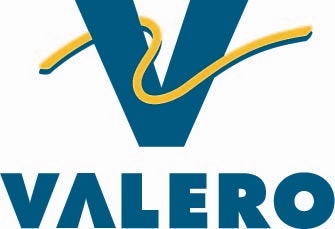The refinery business isn’t very exciting, but it can be profitable. With the growth in American energy production and ban on raw crude exports, many refineries have seen their business boom. Using a simple two-stage discounted cash flow calculation, Valero Energy Corporation (NYSE:VLO) stands out as a refiner that is undervalued with an attractive future.

VLO Free Cash Flow Per Share TTM data by YCharts
Two Stage Discounted Cash Flow Analysis
The basic idea behind discounted cash flow analysis is simple. You get the value of a company by looking at all of its future cash flow. By using free cash flow you can see how much cash a company really produces, apart from its normal business costs. This article uses a two-stage analysis with a high-growth stage and a later low-growth stage.
After getting a company’s free cash flow, you take a look at the company’s growth rate and the required rate of return. A good rule of thumb for the required return rate is the ten year Treasury rate plus five percent. In this model the high growth stage uses the current ten year rate around 2.57% plus 5%. For the second period a higher 3.57% rate plus 5% is used. A higher rate is used for the second stage, because the end of the government’s quantitative easing program should boost interest rates.
The expected 2014 earnings per share (EPS) growth rate is a good place to find the high-growth stage rate. For the second stage a stable 3% growth rate is used. Using all of these numbers you can calculate the intrinsic value of any company.

A Diamond in the Rough
A quick look at the Energy Information Agency’s (EIA) latest numbers shows that Valero Energy Corporation (NYSE:VLO) is the biggest refiner in the U.S., followed by Exxon Mobil Corporation (NYSE:XOM) and Phillips 66 (NYSE:PSX). Valero’s size serves as an asset for the company. In 2013 it is upgrading its logistics operations to help buy more cheap North American crude and less expensive imported crude. It is expecting to spend $250 million to expand its rail car fleet. These rail cars help to decrease the company’s reliance on pipelines.
Valero Energy Corporation (NYSE:VLO) is also looking to take advantage of the spread between cheap natural gas and expensive diesel fuel with hydrocrackers. Its new hydrocracker facilities will boost its bottom-line and help differentiate the company from its competitors.
Valero’s Intrinsic Value
Plugging in Valero Energy Corporation (NYSE:VLO)’s current free cash flow per share of $4.261 and its expected 2014 EPS growth rate of 5.99% into a two stage discounted cash flow calculator gives an intrinsic value of $87.78 per share. It is important to note that this calculator uses a three year high-growth stage and then a permanent lower growth stage. An intrinsic value of $87.78 is a substantial increase from Valero’s current share price of around $35.
Reworking the numbers with a more conservative current free cash flow per share of $3.85, a growth period rate of 1.5%, and a constant period growth rate of 2.0% reveals an intrinsic value around $60.51 per share. Both estimates show that Valero Energy Corporation (NYSE:VLO) is a good deal around $35 per share.
The Competition
The majority of Exxon Mobil Corporation (NYSE:XOM)’s growth comes from its upstream operations. It recently bought into Alberta’s tight oil fields along with its operations in America’s Bakken region. While the majority of the company’s earnings come from its upstream operations, it is still the second biggest refiner in the U.S.
ExxonMobil’s latest free cash flow per share figure of $3.59 and its expected 2014 EPS growth rate of 2.83% (as the first stage growth rate) reveal an intrinsic value of $68.01 per share. Using the firm’s five year EPS growth rate of 5.86% for the first stage rate boosts its intrinsic value to $73.89 and makes its current stock price around $90 a tad more reasonable. ExxonMobil is a strong long-term company with a proven ability to create shareholder value, but at current prices it is not a value play like Valero.
Phillips 66 (NYSE:PSX) was recently spun off from ConocoPhillips, and the company is still trying to rework its operations. Like Valero, it is looking to buy more rail cars to take advantage of cheap North American crude. Still, Phillips 66 has significant international operations and uses a large amount of expensive Brent crude oil.
While Phillips 66 did produce $7.839 in free cash flow per share over the last four quarters, its EPS is expected to decline -8.01% in 2014. Using these numbers, the discounted cash flow calculator reveals an intrinsic value of $108.51. This price is a substantial increase from its current stock price of around $60, but it is safer to wait and see how much its earnings will really fall.
Conclusion
Intrinsic value estimates are helpful guides. Currently Valero is trading at a steep discount to its intrinsic value, even when using more conservative figures. Given ExxonMobil’s current expected EPS growth rate, it is hard to paint it as a deep value play. Phillips 66 is a powerful refiner, but its falling EPS raises questions.
The article Don’t Miss the Value in Valero originally appeared on Fool.com and is written by Joshua Bondy.
Joshua Bondy has no position in any stocks mentioned. The Motley Fool has no position in any of the stocks mentioned. Joshua is a member of The Motley Fool Blog Network — entries represent the personal opinion of the blogger and are not formally edited.
Copyright © 1995 – 2013 The Motley Fool, LLC. All rights reserved. The Motley Fool has a disclosure policy.



